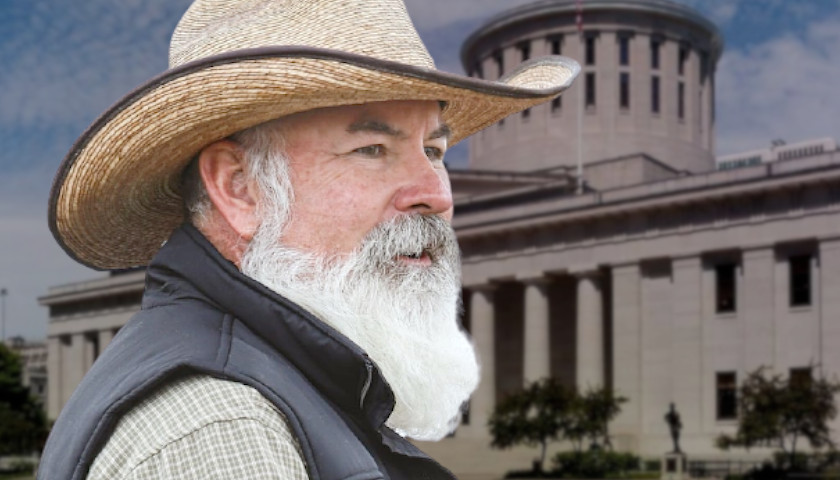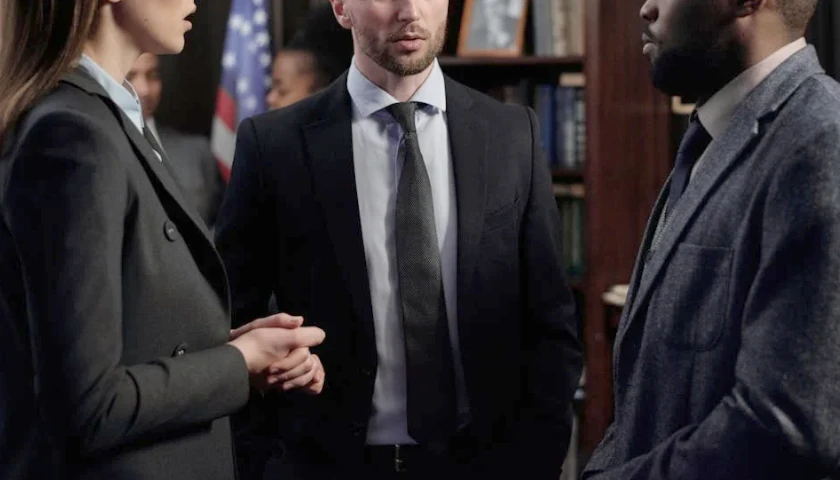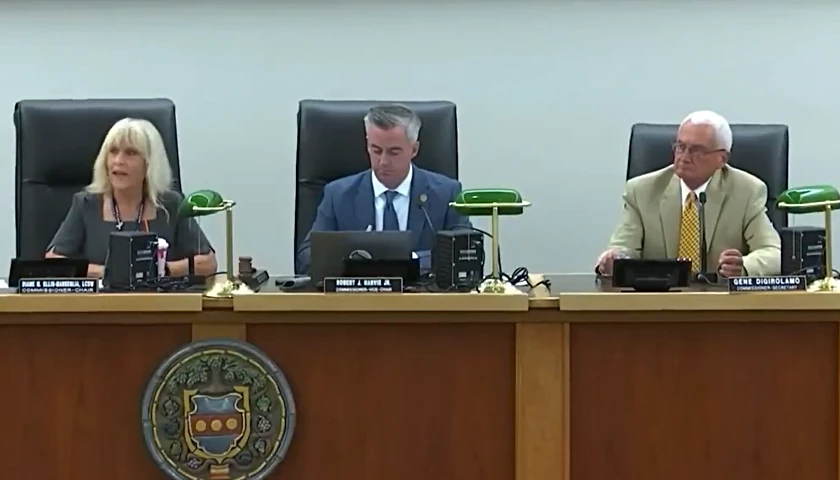by Jack Windsor
COLUMBUS, Ohio – The Ohio Elections Commission (OEC) found probable cause to further investigate and decide two complaints filed against Ohio Republican gubernatorial candidate Joe Blystone’s campaign and booked a full-panel hearing for May 2, one day before the primary election.
Thursday, a Probable Cause panel comprised of commissioners D. Michael Crites (R), Charleta B. Tavares (D) and Ernest C. Knight (I) voted unanimously on an expedited investigation into cases that allege the Canal Winchester farmer and restauranteur improperly reported campaign contributions and expenditures and spent campaign funds for personal use.
Attorney Curt Hartman repeated a statement during a phone interview similar to one he made during the hearing, “This isn’t a school board race where a candidate raised and misreported $500. This is a race for the top executive office in the state of Ohio involving half a million dollars, and it’s amateur hour. It appears Blystone’s primary defense is ‘we’re new, we’re not sophisticated and we’re running a unique campaign.’” Hartman represents Mary Capella, the Buckeye State voter who filed the complaints with the OEC.
The complaints stem from filings made by Friends of Joe Blystone in January that reported 2021 campaign finance activities. Statewide candidates are required to file a semi-annual and annual report with the secretary of state detailing contributions and expenditures.
Attention was brought to reporting irregularities after Blystone received a letter dated March 4 from Ohio Secretary of State Frank LaRose, signed by Brian Katz, director of campaign finance. The 20-page findings letter outlined two dozen irregularities, including:
• $99,051 in cash contributions that must be returned to donors;
• $133,038 in non-individual and in-kind business contributions along with money given by “locations or event descriptions rather than an individual or entity,” that need to be further clarified by providing a name of the businessperson making the contribution, or may need to be returned altogether if given by a corporation;
• campaign expenditures totaling $40,299 missing appropriate documentation;
• $17,111 in campaign expenditures that don’t tie back to bank statements supplied by the campaign;
• $1,100 in contributions (or in-kind contributions) from corporations that must be returned;
• $8,956 in contributions that were not listed as cash, check or credit card donations that require additional explanation;
• $2,848 in “vague” expenditures that need additional clarification.
After reports about the inconsistencies were published, Blystone released a statement to the press about the inquiry stating that his legal counsel talked with LaRose’s office and agreed to a framework for bringing the camping finance reports into compliance. The secretary’s spokesman, Rob Nichols, confirmed that conversation and said the goal with Blystone, and all candidates, is to help the campaign be compliant with Ohio election laws.
The grassroots candidate promised a press release on April 15 that would unveil the updated reports and disclose how much money the campaign would need to return—an amount Blystone said would be well below the more than $100,000 cited in news reports.
However, no such press release was delivered.
Calls to Blystone’s legal counsel and the candidate himself were not returned. However, Nichols confirmed that a conversation did occur between LaRose officials and Blystone’s campaign on April 15. The findings from that session have not yet been disclosed by LaRose’s office.
The Ohio Press Network (OPN) also requested from the secretary findings letters sent to other gubernatorial and U.S. Senate campaigns in the ’22 election cycle, if they exist. A member of the secretary’s staff said that the request would be fulfilled in the order in which it was received but noted that it would likely be after the May 3 primary – a fact, that if true, leaves Ohio voters in the dark about whether other candidates had similar irregularities in their reports.
This is Blystone’s second brush with the OEC. The first is on pause and stems from complaints filed by former campaign co-manager Sarah Chambers. The commission found probable cause in Chambers’ complaints and presentations during an initial trial in December. The December panel ruled that a full-commission hearing should be held, but Blystone contended that decision in Franklin County Common Pleas Court.
The move caused the OEC to halt proceedings on Chambers’ inquiries until the common pleas court decides the fate of the case there.
The former Blystone campaign worker claims Blystone intentionally underreported cash contributions and didn’t disclose the names of those contributors. “These cash contributions are being reported in this manner in order to facilitate a theft of these campaign funds by the respondents,” said Chambers.
According to recent polls, the top contender in the race for the governor’s chair is incumbent Mike DeWine. The 40-year politician has been the focus of several news reports detailing dark-money groups that contributed to his campaign coffers previously, several with ties to the federal probe involving FirstEnergy, former House Speaker Larry Householder (who has maintained his innocence) and a 501(C)(4) that admitted guilt in a $61 million racketeering scheme involving the Akron-area electric utility.
– – –
Jack Windsor is the Editor-in-Chief of The Ohio Press Network. Windsor is also an investigative reporter for The Ohio Press Network and a Statehouse correspondent for WHK AM1420 in Cleveland.
Photo “Joe Blystone” by Joe Blystone.




